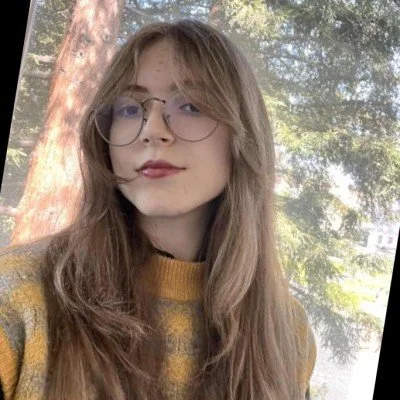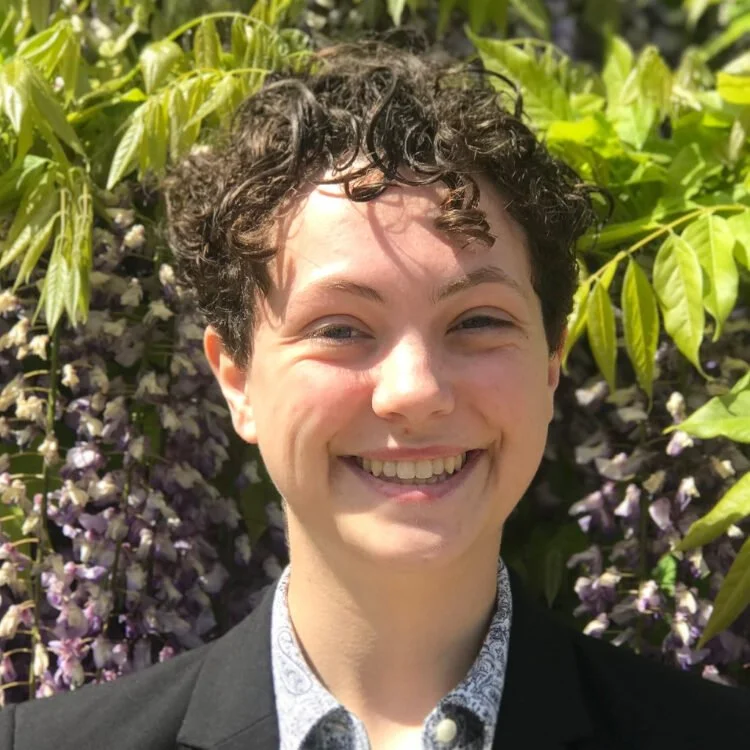-

Lillian Lowrey
Lillian Lowrey is a Barbara McClintock Biosciences Postdoctoral Fellow at Sandia National Labs where she works on generating phage-based tools for genetic engineering and directed-evolution of valuable microbial enzymes for bioremediation and biomanufacturing purposes. She received her B.S. from Davidson College and her Ph.D. from the University of North Carolina at Chapel hill. She is excited to join Phage Pathways as a mentor for a summer intern that will optimize phage-inspired tools for stable genetic manipulation of bacteria.
-

Jessica Trinh
Jessica Trinh is a Postdoctoral Appointee at Sandia National Laboratories, with a PhD in Microbiology from UC Davis. She is currently researching the use of phages as potential therapeutic agents against the critical pathogen Acinetobacter baumannii and as biotechnological tools for safe microbiome editing. Much of her work involves the engineering of prophages, or phages that integrate into bacterial genomes, as host-specific chasses.
-

Denish Piya
Denish Piya is a team member of the DOE BRaVE-funded project for systematic characterization of phages and phage-tail like bacteriocins as a powerful countermeasure to tackle the antimicrobial resistance pandemic. He is currently interested in idenitfying factors that modulate interactions between phages and pathogenic bacteria so that machine la=earning tools can be employed to predict interaction between novel phages and their bacterial hosts. He is applying CRISPER and Dubseq technologies to study how genes affect fitness in the context of phage infection.
-

Hemma Selvakumar
Hemaa Selvakumar is a Postdoctoral Researcher in the Mutalik Lab and a member of the Phage Foundry initiative of the DOE BRaVE project focused on combating emerging drug-resistant pathogens. She is interested in developing next-generation approaches to characterize phage-host interactions and building novel machine learning approaches to predict phage susceptibility. She is an alumnus of Georgia Tech (PhD, Physics) and IISc, Bangalore (BS, Physics). During her doctoral studies, she contributed to the development of self-regenerating, biocompatible polymer brushes with anti-biofilm properties and studied the spatiotemporal dynamics of phage-biofilm-immune cell interactions with the guidance of Dr. Jennifer Curtis and Dr. Joshua Weitz. Prior to joining LBNL, Hemaa worked as a Scientist at Felix Biotechnology, where she advanced synthetic biology platforms for engineering therapeutic, non-model phages.
-

Mohamad Alayouni
Mohamad earned his B.S. in Biotechnology and molecular biology from George Mason University, in Virginia, USA. And in December of 2023 he graduated from Johns Hopkins University, in Maryland, USA with a M.S. in Biotechnology. After Graduating from JHU he relocated to the Bay Area. As a Research Associate at Phage Foundry, Mohamad is working on developing automation methods to rapidly isolates phages and applying synthetic biology tools engineer and evolve phages with specific functional traits. In his previous career position he was working in a cancer therapeutic startup company in MD, and performed various high-throughput experiments to identify potent anticancer compounds. In his free time he enjoys performing DIY-Bio experiments such as genetically engineering yeast to produce beta-carotene and being involved in the DIY-Bio community. He also enjoys biking, hiking, boating, snowboarding, visiting museums and going to the beach.
-

Madeline Svab
Madeline is an Undergraduate Student, in Biochemistry & Microbial Biology at University of California, Berkeley / Lawrence Berkeley National Laboratory. She helped co-lead the Phage Discovery workshop for the 2025 cohort hosted by the Mutalik lab.
-

Isabella Murray
Isabella is an undergraduate student in biochemistry, and microbial biology at University of California, Berkeley / Lawrence Berkeley National Laboratory. Isabella helped co-lead the phage discovery workshop for the 2025 cohort hosted by the Mutalik lab.
-

Faith Dukes
Director of K-12 STEM Education Programs
Faith started combining her passions for science and education as an instructor with Science from Scientists while working on her PhD thesis on waste remediation using photocatalytic semiconductors. She went on to develop educational programs as the Education Coordinator at the Massachusetts Institute of Technology Museum before transitioning to Washington, DC as an American Association for the Advancement of Science, Science Technology Policy Fellow. During her time as a Fellow, she served at the National Science Foundation in the Education and Human Resources Directorate.
-

Sona Garsevanyan
Sona Garsevanyan was a Postdoctoral Fellow at San Francisco State University and Program Manager for the 2025 Phage Pathways Program. She received her PhD in Quantitative and Systems Biology from UC Merced. Where she initiated the collection of Gram-negative clinical isolates of bacteria expressing resistance to extended spectrum β-lactam antibiotics. She is passionate in studying bacterial evolution in highly resistant pathogens and specific resistance phenotypes.